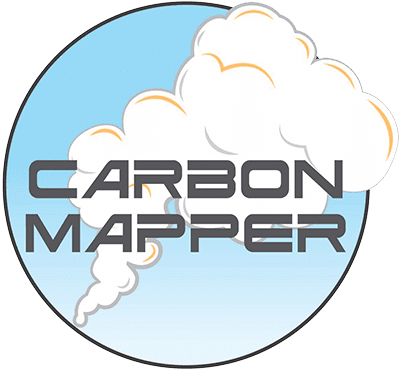
MEDIA CONTACT: Kelly Vaughn, Carbon Mapper
kelly@carbonmapper.org
(970) 401-0001
Carbon Mapper Launches New Initiative to Guide Global Action on Solid Waste Methane Emissions Thanks to $8M Commitment from the Grantham Foundation
The new initiative will conduct the first global assessment of its kind and establish a baseline understanding of the world’s highest methane-emitting solid waste sites—broadening insights into the sector’s climate impact and revealing opportunities to mitigate these emissions.
November 16, 2022—Pasadena, CA—Today, Carbon Mapper and the Grantham Foundation for the Protection of the Environment announce the development of a new waste methane initiative to conduct a first-of-its-kind global assessment of thousands of high-emitting solid waste sites using remote-sensing technologies. The multi-year effort will leverage remote observations to detect and quantify site-specific methane emissions to establish a baseline of high-emitting solid waste sector sites.
This initiative will fill gaps in societal and scientific understanding of methane (CH4) emissions from solid waste sites by establishing the first measurement-derived baseline of high-emission facilities that can inform regulations, operational monitoring and investment priorities useful to countries delivering on the Global Methane Pledge. Currently, there is limited actionable information about the global waste sector, which is especially problematic considering that the waste sector contributes almost 20 percent of global human-caused methane emissions.
Throughout the world, methane abatement has proven to be constrained by economics, logistics, awareness and insufficient monitoring. This new initiative focuses on providing precise, facility-level waste methane emissions data that can be used by operators, regulators, community groups and other stakeholders to inform and prioritize near-term mitigation actions.
“We are grateful for Grantham Foundation’s philanthropic leadership to tackle methane emissions from the waste sector, which comes at a critical time given the urgency of the climate crisis and the outsized role methane plays in warming our planet,” said Carbon Mapper CEO Riley Duren. “Understanding point-sources and super-emitters from waste sites is a first step to mitigating them, and new technological capabilities have the potential to change the game—elevating our collective understanding of near-term opportunities in this often-overlooked sector.”
The initiative involves an initial remote-sensing survey of more than 1,000 managed landfills and open dumpsites across the U.S., Canada and key locations in Latin America, Africa and Asia in 2023. In addition to expanding airborne surveys, Carbon Mapper will begin analysis of data from the Earth Surface Mineral Dust Source Investigation (EMIT), an instrument managed by NASA’s Jet Propulsion Laboratory that is housed on the International Space Station.
“NASA JPL has been collecting information on methane and carbon dioxide point-source emissions with high fidelity airborne imaging spectroscopy for nearly a decade, and we’re excited that this same technology on EMIT is able to measure localized methane and carbon dioxide sources from space,” said JPL’s Robert Green, the principal investigator for EMIT.
A more comprehensive global survey of an estimated 10,000+ landfills and dumpsites is planned for 2024 using the monitoring capabilities of the first two satellites in the Carbon Mapper Satellite Program, targeting launch in 2023 in coordination with Planet Labs PBC.
Observational data from the project will be released through the Carbon Mapper Data Portal, including geolocated plume images, emissions rates and new landfill-specific analytics.
Working together during the first year of the project, Carbon Mapper will leverage partner aircraft—including JPL’s AVIRIS-NG and Arizona State University’s Global Airborne Observatory with the Center for Global Discovery and Conservation Science—to conduct the initial surveys while also using observations from NASA’s EMIT instrument. Expected in late 2023, our monitoring capabilities will be vastly expanded (thanks to Carbon Mapper’s unique public-private partnership with Planet and others) with the launch of two satellites that will provide significant wide area coverage and sensitivity to methane point-sources.
Learn more about the impacts of waste methane and Carbon Mapper’s role in making emissions visible and thereby actionable at wastemethane.carbonmapper.org.
About Carbon Mapper
Carbon Mapper is a nonprofit organization focused on facilitating timely action to mitigate greenhouse gas emissions. Its mission is to fill gaps in the emerging global ecosystem of methane and CO2 monitoring systems by delivering data at facility scale that is precise, timely and accessible to empower science-based decision making and action. The organization is leading the development of the Carbon Mapper constellation of satellites supported by a public-private partnership composed of Planet Labs PBC, NASA’s Jet Propulsion Laboratory (managed by Caltech in Pasadena, California, for NASA), the California Air Resources Board, the University of Arizona, Arizona State University and RMI, with funding from High Tide Foundation, Bloomberg Philanthropies, Grantham Foundation and other philanthropic donors. Learn more at CarbonMapper.org and follow us on Twitter @carbonmapper.
About Grantham Foundation
Grantham Foundation for the Protection of the Environment, and its affiliate, Grantham Environmental Trust, believe that innovation and technology are the best hope for an enduring future. The Grantham Trust and Foundation have, for over 15 years, focused on climate change mitigation and support over ninety grantees and fifty companies around the world. For more information, visit www.GranthamFoundation.org.
